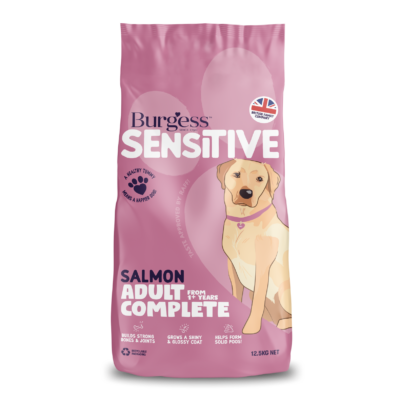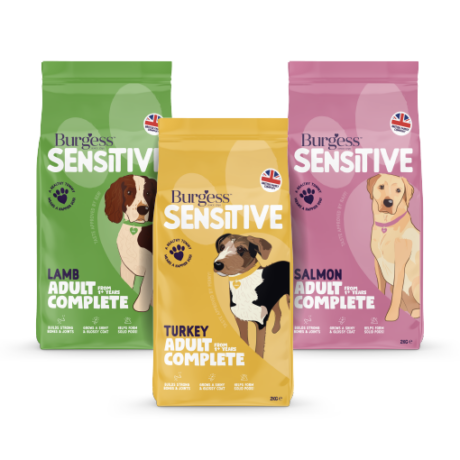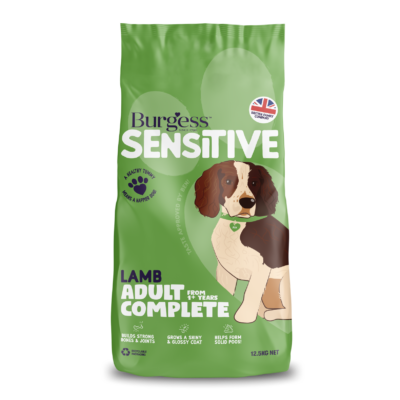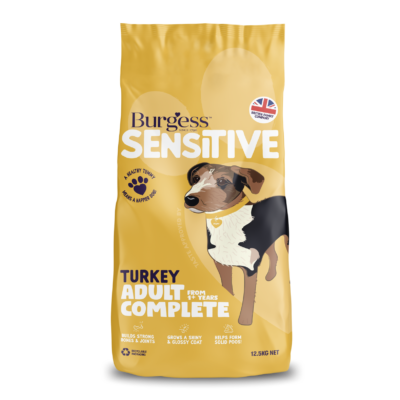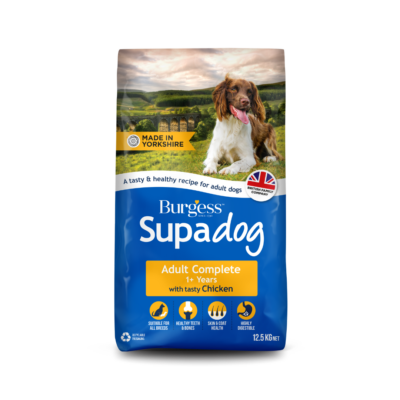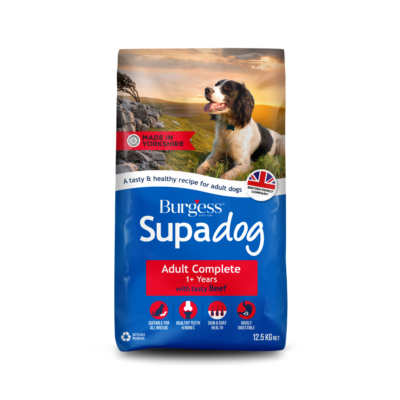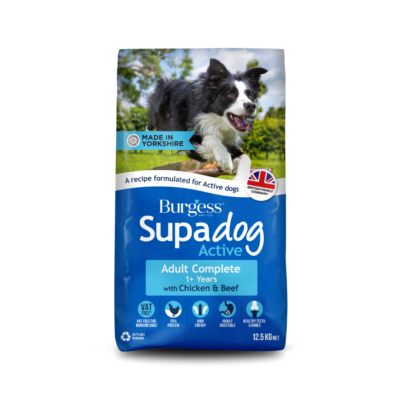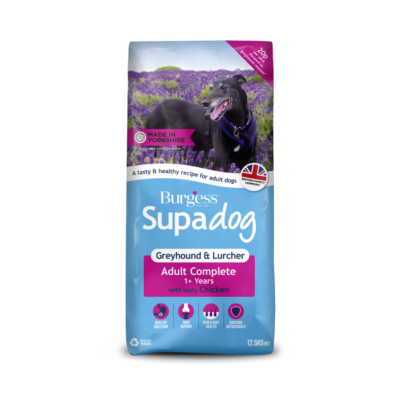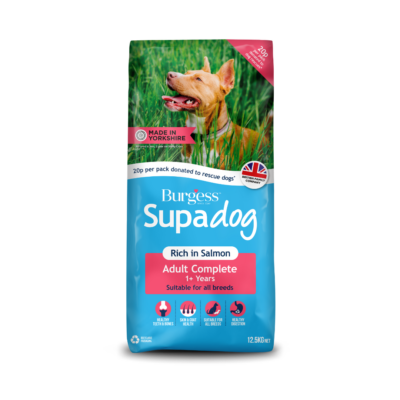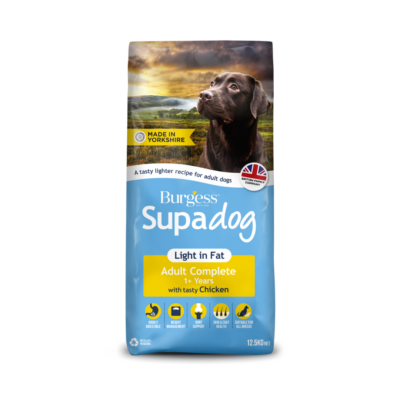
Dogs aren’t, as is often believed, classed as carnivores. They’re actually omnivores, which means they benefit from a diet that contains both animal and plant-based foods.
A healthy diet for an adult dog should contain good-quality meat or fish for protein, supplemented with vegetable proteins such as soya, grains or peas. And, as your dog goes through different life stages, their nutrition needs change. A puppy needs a different blend of nutrients compared to an adult or senior dog.
That’s why, if you’ve ever wondered ‘Can puppies eat adult dog food?’ or ‘Can adult dogs eat puppy food?’, the answer is – yes, they can, but nutritionally, it’s not the best option.
Today, high-quality dog food is created using the latest in nutritional science to calculate the correct balance of vitamins, minerals, protein, carbohydrates and fats that your dog needs throughout their life – first as a puppy, as an adult and then as a senior.
The best dog food for adult dogs is naturally rich in protein for good muscle maintenance and contains essential fatty acids to help nourish their coat and maintain healthy eyes.
All Burgess dog food, such as the classic Burgess Supadog range, is a complete food. This means, whatever variety you choose for your dog, it will contain all the nutrients they need in the correct balance.
Adult Dog Food FAQs
Got a question about adult dog food? To help you understand more about what to consider, we’ve put together some really useful answers from our nutrition team at Burgess, the pet care experts.
Need more advice?
If you’re at all unsure about the best way of feeding your dog or have any concerns about specific nutritional requirements, ask your local veterinary practice for advice.
You can also call our expert team, available 9am-5pm, Monday to Friday, on +44 (0)1405 862241 and they’ll be happy to help. Alternatively, use our online contact form to get in touch.
Is your dog a Burgess dog? Join the Burgess Pet Club for exclusive offers and rewards.

